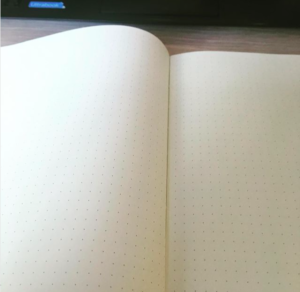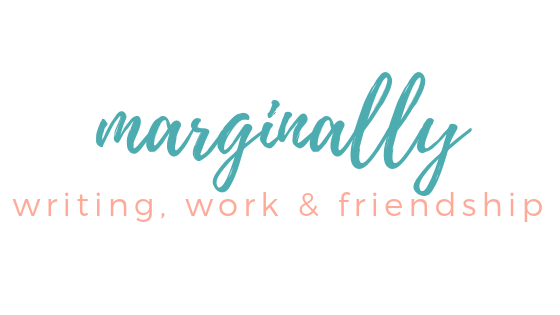 You know how writing in a new notebook, on that first page, is super hard? I always just skip the first page and then I’m writing on the second page, and then I can move on. Or write something witty on that second page about how I don’t want to write on the first page.
You know how writing in a new notebook, on that first page, is super hard? I always just skip the first page and then I’m writing on the second page, and then I can move on. Or write something witty on that second page about how I don’t want to write on the first page.
Anyway, we can’t do that on the blog – you always have to write the first post. No getting around it; it just has to be done. So consider this post, to some degree, as an almost-blank first page.
It’s been really difficult to start this project and this blog that we’ve been talking about for weeks. Before this, we swapped productivity tips and photos of to-do lists with ease. Now that the blank screen is staring me in the face, I’ll just start with three things we’ve learned as writers who have full-on day jobs and lives – all of which could be a podcast episode or two on their own.
First, in order to do this writer-with-a-day-job thing, you need a routine. Or at least we do. I’m naturally a night owl – I was since I was a kid. But my day job requires me to be in the office at a certain time, but doesn’t necessarily release me on time. So mornings are my best bet for fresh, clear thinking, and I write better when I can move from dreams to writing without interruption from the news, facts and social media.
Second, we’ve found it useful to plan in advance. When I have longer chunks of time to just write freely, knowing precisely what I need to write is not so important. But if I have 1 to 1.5 hours in the morning, I need to have a scene or a direction that I can resume and keep going with.
Third, you can’t do it all – priorities matter. If I’m writing intensively, every day, it means I need to go to bed, that I can’t go out with friends every night, and sometimes it means I don’t exercise or run as much as might when I’m not writing. I also don’t hole myself up in my house every day without meeting other humans because social activity is also important. It’s about prioritizing your writing but also having a balance, and figuring out what’s best for you.
Last, it’s a lifelong journey. No routine or system is perfect. When I hold too tightly to my existing routine, I can sometimes feel brittle or like I’m sacrificing everything either for my work or for my book. At the same time, I won’t find the perfect routine that will make me a writer unless I just freaking sit down and write.
What have you learned on your writing-and-working journey? We’d love to hear your thoughts and comments.

